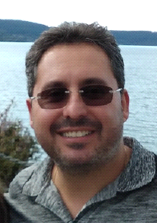News from the Ground | " Refugee Resettlement in Levin"
Refugee Resettlement in Levin
United Nations High Commissioner for Refugees (2024) provides us a glimpse to the bleak picture of the refugee's journey. There are now over 114 million individuals (40% children) forcibly displaced from their homes worldwide for reasons of violence, persecution, and violations of human rights, with over 36 million given refugee status by the United Nations. Only 0.3% of refugees are resettled in countries that have agreed to take them as permanent residents. As part of the formal refugee resettlement programme set up in 1987, New Zealand is now committed to resettling 1500 refugees annually.
Levin, one of New Zealand's latest regions to embrace quota refugees, welcomed its first family in October 2022. Presently, Levin is now home to 28 families, with 25 hailing from Colombia and the remaining three from Venezuela, totalling 91 individuals across both ethnicities. The humanitarian crisis in Venezuela, driven by widespread violence, gang warfare and soaring inflation resulting in extensive shortages of food, medicine and essential services, has resulted in 20% of the population fleeing the country since 2014. Prolonged internal conflict spanning over six decades between the government, paramilitary, and guerrilla groups in Colombia have seen nearly 400,000 refugees from the country since the 1990s. Continued political and social turmoil has meant that Colombians have had to live in constant fear of kidnappings, torture, child recruitment, sexual violence, getting caught in the crossfire and mass killings.
 Carlos Páez García (Programme Lead at Quota Refugee Resettlement Health Services Levin with Te Whatu Ora MidCentral – Te Pae Hauora o Ruahine o Tararua) stated that there has been good collaboration between stakeholders in Levin and families have been able to receive extensive wrap-around support that they may not have had in bigger cities. Families have welcomed the ability to live in peace and warm interactions with the local iwi, neighbours, and volunteers. Cultural differences, language barriers and lack of public transport have further hindered the integration process. Carlos highlighted that the biggest challenge currently being addressed was the accessibility of appropriate mental health services to address complex trauma presentations in the resettled community. With a long waitlist to access Horewhenua Mental Health Services, two local counselling NGOs support the mental health referrals made by the Refugees as Survivors (RASNZ) mental health clinical team at Māngere Refugee Resettlement Centre. Education on the refugee journey and working with interpreters can significantly enhance the interaction and service delivery of Quota Refugee Resettlement Health services with resettled communities. Levin is co-ordinating the facilitation of training, including the eCALD modules. There is further work in progress to address the mental health needs of this population group.
Carlos Páez García (Programme Lead at Quota Refugee Resettlement Health Services Levin with Te Whatu Ora MidCentral – Te Pae Hauora o Ruahine o Tararua) stated that there has been good collaboration between stakeholders in Levin and families have been able to receive extensive wrap-around support that they may not have had in bigger cities. Families have welcomed the ability to live in peace and warm interactions with the local iwi, neighbours, and volunteers. Cultural differences, language barriers and lack of public transport have further hindered the integration process. Carlos highlighted that the biggest challenge currently being addressed was the accessibility of appropriate mental health services to address complex trauma presentations in the resettled community. With a long waitlist to access Horewhenua Mental Health Services, two local counselling NGOs support the mental health referrals made by the Refugees as Survivors (RASNZ) mental health clinical team at Māngere Refugee Resettlement Centre. Education on the refugee journey and working with interpreters can significantly enhance the interaction and service delivery of Quota Refugee Resettlement Health services with resettled communities. Levin is co-ordinating the facilitation of training, including the eCALD modules. There is further work in progress to address the mental health needs of this population group.
Image:
Carlos Páez García, Programme Lead at Quota Refugee Resettlement Health Services Levin with Te Whatu Ora MidCentral – Te Pae Hauora o Ruahine o Tararua
